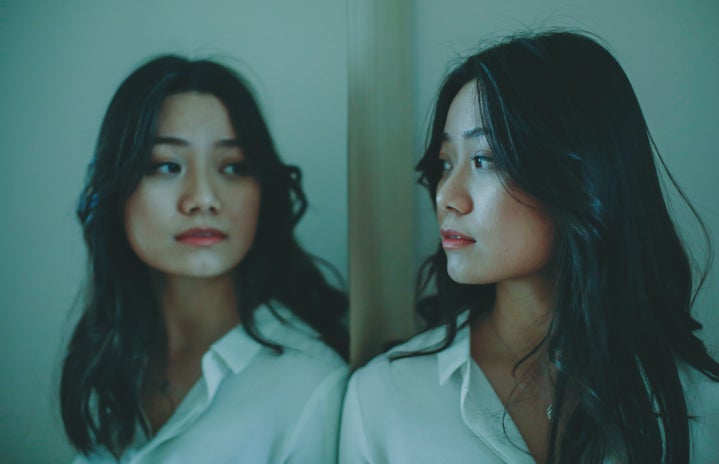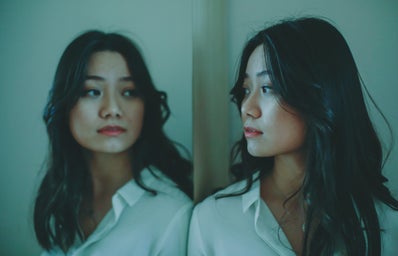In Laura Mulvey’s Visual Pleasure and Narrative Cinema,a pathbreaking theory is introduced about the gendered nature of onscreen representations and coins the term ‘male gaze.’ This concept remains significant because its effects reach far beyond the absence of women on screen— audiences, regardless of their gender, are forced to align with the perspectives and lived experiences of men, always having to modify the gaze to suit their interpretations of narratives and views of the world. Among the testosterone filled onscreen spaces of Hollywood, few women have managed to leave their mark by embracing and portraying strong, relevant and realistic characters. Here is a rundown of my all-time favourite female characters.
*Spoilers ahead*
4. Shoshanna in Inglorious Basterds
Quentin Tarantino films have always been a bittersweet watch — they allow room for interesting characters to shine and exist in Tarantino’s unique universe, but they also ooze of the very loud acts of machismo and extreme violence, both of which have become a part of his brand as a director. However, Inglorious Basterds has one of my favourite female on-screen characters— Shoshanna. Set during the Second World War, Shoshanna first enters the narrative at the climax of a brilliant and craftily directed opening sequence— belonging to a Jewish family in hiding, Shoshanna’s entire family is found in the basement of a French dairy farmer’s home when a SS officer visits the house, but she manages to escape in a scene that ends with the now famous dialogue, ‘au revoir, Shoshanna!’ The power imbalance is established from the very beginning; she is a Jew, and a woman. All the control lies with the SS officers, but Shoshanna manages to start afresh with a new identity and a new life. But, years later, when she meets the same SS officer again, she begins to plot her plan to avenge the death of her family, and Jewish people. Towards the end of the film, we see her plan in action, as a movie theatre full of SS officers, the Gestapo and Hitler himself, watch a propaganda film being screened by Shoshanna, until it is interrupted by a video of Shoshanna unravelling her identity and intentions. Ultimately, she is the one with the power in Tarantino’s revisionist tale of the Second World War. And while some may argue that the SS officer eventually gets away, Shoshanna is able to achieve (with the help of others of course), something much bigger than justice from a single officer. The shot of Shoshanna on the big screen in the theatre still gives me goosebumps on every viewing!
3. Olivia Evans in Boyhood
Richard Linklater’s Boyhood is one of the best film experiences I have ever had. Aside from the fact that it has been shot over twelve years, its characters, particularly the ones in the background that play an active role in the protagonist, Mason’s, life but are not overshadowed by his story, are fully developed, intriguing creations. However, his mother, played by Patricia Arquette was especially interesting. I remember feeling extremely overwhelmed by her journey throughout the film because it was the first time I had seen a conventionally feminine role of a mother being written and acted authentically and empathetically. The beginning and end of her existence was not her children, which was different from anything I had seen before, for most films portray mothers as obsessively and unconditionally loving creatures whose only purpose in life is to be a mother. Olivia Evans on the other hand, is a woman first, and a flawed, imperfect one at that; she never seems to get it right with romantic relationships, and sometimes even drags her children into uncomfortable situations. Unapologetic and independent, her character is a seamless blend of everything that makes you human, and as we see Mason and his sister Samantha’s journey into adulthood, we also see their mother grow and grow up with them, to develop into individuals who can make mistakes, but also be able to come out of them with courage and resilience.
2. Jo March in Little Women
I feel like I am betraying Louisa May Alcott by listing Jo March as a Greta Gerwig creation, but her refreshing adaptation of Little Women along with Saoirse Ronan’s flawless performance, I cannot help but mention the feisty and inspiring Jo March. She is an outspoken, creative and talented young woman who is ahead of her time. In a male dominated field, she hopes to get her work published but further to this, her characters were unlike the women of her time; they weren’t defined by their marital status or motherhood. To some extent, she is idealistic, as she is surprised by her publisher’s feedback and criticism of her writing. But she is also hopeful; she acknowledges patriarchy and the plight of women in times where their identity belonged to the men in their life, which is in itself revolutionary. What I respect the most about her is how she realises her loneliness after years of resisting romantic love because she had confused being vulnerable with being anti-feminist. Her monologue is heart-breaking, but it is one of the most honest onscreen scenes I have ever seen; she admits her past mistakes in a moment of genuine emotional vulnerability. That’s why, to me, Jo March represents strength.
1. Christine ‘Ladybird’ McPherson in Ladybird
I want to end this list by writing about Greta Gerwig’s, Ladybird. Not only is it arguably my favourite movie of all time, but it is also one led by, written and directed by a woman (these two facts are totally not related!) Ladybird is an American coming of age movie, but it is unlike the unrealistic teenage dramas that the US churns out every year. It tells a real story, with a protagonist who is in equal parts dispassionate and emotional; essentially, she is a confused, misled, impressionable, innocent teenager who is suddenly hit by the allure of adulthood and the ‘grown-up’ behaviours that come along with it. Ladybird’s complicated relationship with her mother is what appeals to me the most, because it is a confusing mix of wholesome and labourous. Ladybird has strong convictions; she tries to be strong, in every situation, even when she’s breaking, because she fears that if she feels sadness or fear, her mother will see weakness. It isn’t until the very end that she understands the nuance of relationships, especially her relationship with her mother. But her journey is one that is relatable– it isn’t filled with unrealistic beauty expectations and getting a man is not every teenage girl’s deepest desire. Life is more complicated than that. Relationships are fragile and held by love, trust and respect, and without these things, they aren’t worth it. Even if chick flicks tell us differently, Ladybird shows us that it’s better to go to the prom with your best friend, than with a man who doesn’t respect you.



